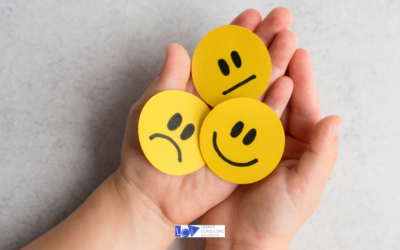How Parenting Styles Influence A Child’s Self Esteem
How Parenting Styles Influence A Child’s Self Esteem
Parental practices & styles influence a child’s self esteem and have a direct effect on a child’s adjustment and view of themselves. Parenting styles are either child centered or parent-centered and are categorized as authoritative, authoritarian, permissive, or neglecting-uninvolved. The effects of a parenting style is further influenced by the parent’s degree of warmth.
Studies show that high self esteem, good social skills, peer acceptance, lower levels of antisocial and aggressive behavior is most likely exhibited by children with an authoritative parenting style. In contrast, authoritarian style of parenting is more likely to produce children with behaviors such as irritability and conflict. These children show more signs of both anxiety and anger and more likely to have lower self-esteem. They may show self-control around authority. However, they lack the self-regulation needed to successfully interact socially when the authority is not present to regulate or monitor for them.
Another influences on a child’s self-esteem is the parent’s method of control. These methods of control are defined as power assertion, love withdrawal and induction. Power assertion is displayed as physical threats or punishments such as spanking, yelling or grounding. Power assertion usually results in children that obey authority but are more aggressive as adolescence or adults and exhibit poor self-regulation. This is much like those children who’s parents exercise authoritarian parenting style. Milder power assertion does prove to be more effective then harsh forms, and is also influenced by the child’s temperament. Love withdraw is defined as a parents withholding attention, verbal communication, eye contact or even turning away from the child. This type of control is usually used in conjunction with another method of control, and has shown to produce much anxiety in the child. This type of control is considered to be a form of psychological control and is a form of manipulation. The more use of such psychological control the lower the child’s self-esteem. When a parent explains why a child should or should not behave a certain way, they are engaging in induction. Induction appears to be the most effective method of parental control. When used in “other-oriented” examples, it is even effective in developing empathy. Induction also appears to produce children that exhibit greater self control.
Studies show that parents that exhibit more warmth have children with a greater self-esteem, higher academic success, and less likely to suffer from depression or delinquency. Parenting style influences parenting practices. Also contributing to the child’s development of self-system, and therefore ultimately their self-esteem, is the child’s temperament. The parent’s parenting style, behavior and reactions is most likely to be affected by the child’s behavior and or temperament.
In conclusion it appears that the most effective parental influences on a child’s self-esteem are the authoritative parenting style combined with warmth and the parenting control method of induction. Each of these are considered to foster a child’ self-esteem, and improve their ability to self regulate. Thus, creating children with lower anxiety and aggression, higher academic achievement and greater empathy.
To learn more about parenting style, and parenting based on personality type, register for my Parenting By Personality Type workshop.
Broderick, P. C., & Blewitt, P. (2009). The life span: Human development for helping professionals (3rd ed.). Upper Saddle River, NJ: Allyn & Bacon.
Doyle, A. and Markiewicz, D. (2005). Parenting, Marital Conflict and Adjustment from Early-to-Mid-Adolescence: Mediated by Adolescent Attachemnt Style? Journal of Youth and Adolescence. 34(2), 97-110.
To learn more parenting tips or attend a workshop on Parenting Based on Personality Type go to Legacy Consulting Workshops
About the author
Michele Burch Reid, MA, founder of LCI, is an Organizational Effectiveness & Personal Development Consultant and Coach. Michele has a master’s degree in Industrial/Organizational Psychology, as well as several certifications. She helps clients create overall satisfaction & potential by tapping into their natural strengths with Personality Type, Emotional Intelligence Training, Biofeedback & other Brain-based tools. Michele’s philosophy is that when you discover what inspires you, you can more easily inspire and lead others. Whether that is in the board room, the class room, or family room.
More From Michele
When Setting New Year’s Resolutions: Remember your WHY
By now you have probably already made your New Year's resolutions. Most of us focus on what we want to start doing or what we want to stop doing. We may even do well by creating a schedule or new system in order to achieve this new goal. However, most of us omit...
What is EQ
Many of you that I have worked with me before know that my favorite Emotional Intelligence assessment is the EQ-i 2.0. But first…. what is EQ? In short, Emotional Intelligence is understanding your own emotions and what you're experiencing at that time. Being able to...
Grit and Success
I had the honor of witnessing grit, courage, passion, and leadership this week at the NSBA Worlds Horse Show. At 22 years old, Holly acts as the trainer, groomer, and handler for her four horses. This is a job for more than one person in the equestrian world. ...





